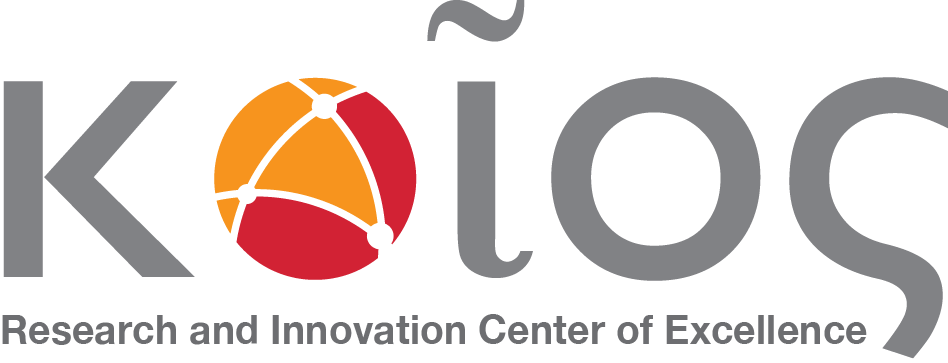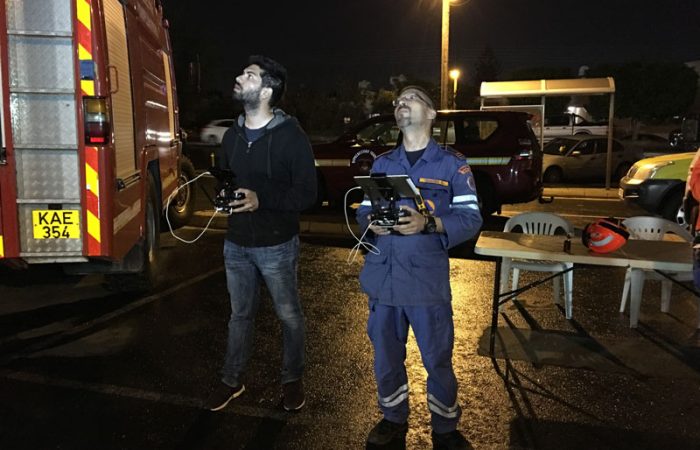The KIOS Research and Innovation Center of Excellence (CoE) has recently joined forces with Cyprus Civil Defence (CCD), in the framework of the project entitled “LEAPFROG” (Leading Activities for Enrolment of RPAS Units in the Voluntary Pool). The project has received funding from the European Union’s 2018 Call for proposals for buffer capacities for addressing temporary shortcomings in extraordinary disasters under grand agreement DG ECHO LEAPFROG GA-782233.
The project “LEAPFROG” aims at introducing RPAS modules (Remotely Piloted Aircraft Systems) to the voluntary pool of response capacities to requesting EU Member States.
Currently, traditional means of situational/needs assessment provided by experts on the ground are inherently time consuming, and entailed high capital and operational expenditure. In most cases, access to disaster affected regions might be too dangerous to humans altogether. Undoubtedly, RPAS units can be of great help under these situations since they can offer a plethora of functionalities that are valuable for the breadth of the operation cycle of emergency response units.
“LEAPFROG” envisions to become the first buffering capacity activity to:
- Coordinate the development of standard operating procedures for deployment of RPAS units across Europe during and in the aftermath of disasters, addressing regulatory, technical and organisational aspects.
- Establish a common training structure for competency and capacity building of RPAS operators and pilots.
- Conduct relevant exercises to build skills and confidence in operating under different scenarios.
- Introduce RPAS modules to the voluntary pool.
During the project three set of actions will be implemented: The first is to develop the standard operating procedure. This means to leverage the expertise of the partners both in CP operations and RPAS technologies to instantiate an RPAS module capable of operating across Europe in various disaster scenarios, produce methodologies to improve its interoperability with other CP modules, standardize procedures, and then develop automation solutions for assisting operators and enhancing situational awareness.
The next action is to develop training scenarios and exercises that will enhance the technical expertise of the partners on this technology and build knowledge in the use of RPAS for various applications including monitoring of hazards, and search and rescue.
The last action is to implement different pilot scenarios so that the end-users can put the RPAS module into practice and assess, in the field, its applicability to the tasks that it is assigned. Also, these pilot scenarios will provide an opportunity for the end-user partners to provide feedback and suggestions for improvement.
The project consortium comprises of the Cyprus Civil Defence as the Coordinator, of the KIOS Research and Innovation Center of Excellence as the Technical Partner, the Regione Autonoma Della Sardegna (RAS), Italy, as well as the Communication and Information Systems Directorate, Ministry of Interior of Bulgaria, as Partners.
Project’s website: https://www.kios.ucy.ac.cy/leapfrog/
The project has received funding from the European Union’s 2018 Call for proposals for buffer capacities for addressing temporary shortcomings in extraordinary disasters under grand agreement ECHO/SUB/2018/BUF01/782233..



